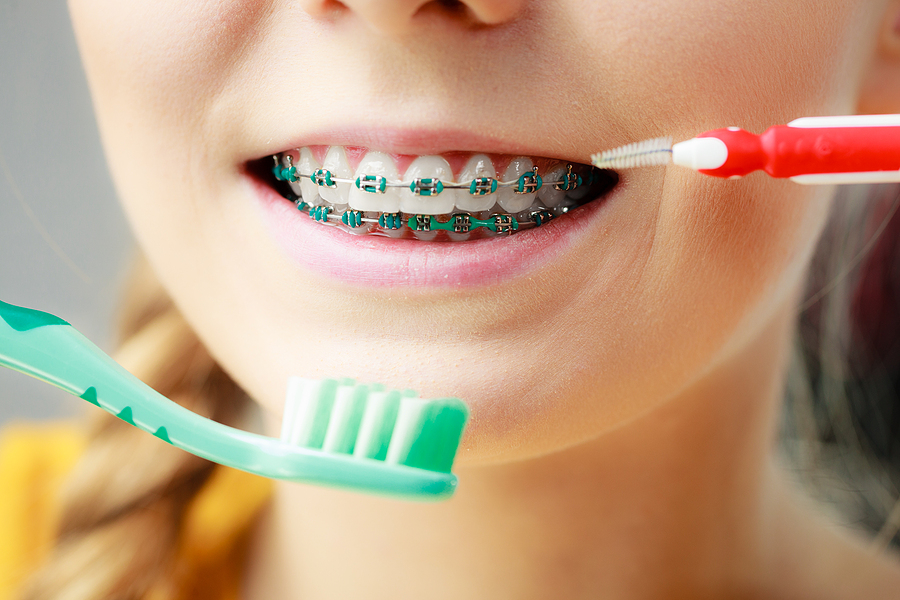Taking Care of Oral Health Crucial to Quality of Life for HIV Positive Patients
Posted by Gannon Lee on Nov 25 2019, 10:07 PM
HIV is a virus that weakens the immune system and makes it difficult for the body to fight infections. HIV is spread through sexual contact, blood transfusion, and from an infected mother to her child.
What Causes Oral Health Issues?
One of the biggest reasons why HIV patients develop oral health complications is because they often suffer from dry mouth. A dry mouth occurs when the salivary glands don’t produce enough saliva to keep the mouth moist. A lack of moisture in the mouth can lead to tooth decay, gum disease, and infections.
It’s also common for HIV-positive people to aspirate their medications into their mouths, which can eventually lead to complications like thrush or yeast infections.
In addition to taking certain medications that can affect oral health, many HIV medications cause other side effects such as nausea, vomiting, and weight loss. These can all have a negative impact on the overall health of the mouth by causing missing teeth, receding gums, or bone loss.
The good news is that there are things you can do to maintain good oral health if you have HIV. This includes brushing your teeth at least twice a day for at least two minutes at a time, flossing daily, eating a healthy diet, and avoiding smoking and/or consuming alcohol. Talk to your dentist for more tips on maintaining excellent oral health while managing HIV symptoms.
How HIV Affects the Body?
The human immunodeficiency virus, or HIV, weakens the immune system and compromises the body’s ability to fight off infection. This can cause oral conditions like gum disease, tooth decay, and dry mouth to occur more easily in patients with HIV. Research shows links between oral health and overall health, meaning HIV-positive patients should pay close attention to their oral health and be diligent about practicing good oral hygiene habits at home. Regular visits to the dentist’s office are also important.
Dentists play a vital role in the health of patients with HIV/AIDS. By monitoring teeth, gums, and other soft tissues for signs of disease, dentists can alert their patients to potential problems or a worsening of their condition before it becomes serious. Professionals can also help patients devise a plan to prevent the spread of the infection through their saliva, which can easily contaminate toothbrushes and dental equipment and can affect both patients and dental staff. Dental professionals will often recommend that HIV-positive patients schedule more frequent appointments to watch over their teeth and address any issues that arise quickly.
Many medications prescribed to HIV-positive patients have adverse effects on the health of the mouth. Some cause dry mouth, while others can lead to sores in the mouth or even fungal infections. Keeping up with regular visits can help identify these issues before they progress into more serious issues, such as oral cancer, and help reduce the risk of future tooth loss.
Oral Health Issues for HIV Patients
Because dental care is so important, an HIV-positive patient should always maintain his or her oral health. If a patient struggles with an illness that affects the immune system, then he or she is already at a higher risk for oral disease.
Some of the common infectious diseases that affect the immune system include hepatitis C, hepatitis B, and HIV/AIDS themselves. These are all very serious illnesses that require great care and attention.
The CDC estimates that approximately 1.1 million people in the U.S. are currently infected with HIV. While there is no cure for this virus yet, it can be managed with proper treatment medications. These treatments can help patients live their lives normally without experiencing symptoms or complications.
However, one of the potential side effects is an increased susceptibility to infections like colds and flu. This can also cause problems with your oral health.
When you suffer from an immunodeficiency disease, you’re at a much higher risk of developing periodontal disease, which occurs when harmful microorganisms attack your gums and cause inflammation. This is why it’s so important to practice good oral hygiene habits like brushing twice a day and flossing once a day.
If you have trouble keeping your teeth clean due to grinding your teeth or gum disease, it might be beneficial to use an electric toothbrush to reduce the pressure on your teeth and gums when you brush. An electric toothbrush can also help with plaque removal by gently scrubbing away any buildup on or around your teeth. This can reduce your risk of gingivitis and other oral health issues.
It might also be necessary for you to use topical antiseptic rinses to fight off harmful bacteria when you can’t brush your teeth right away. Make sure you talk to your dentist about how to properly care for your mouth if you’re living with a serious condition. This will help reduce your risk of serious oral health complications.
Regular dental care is crucial for everyone in order to prevent cavities and other problems. However, it’s even more important for HIV patients.



